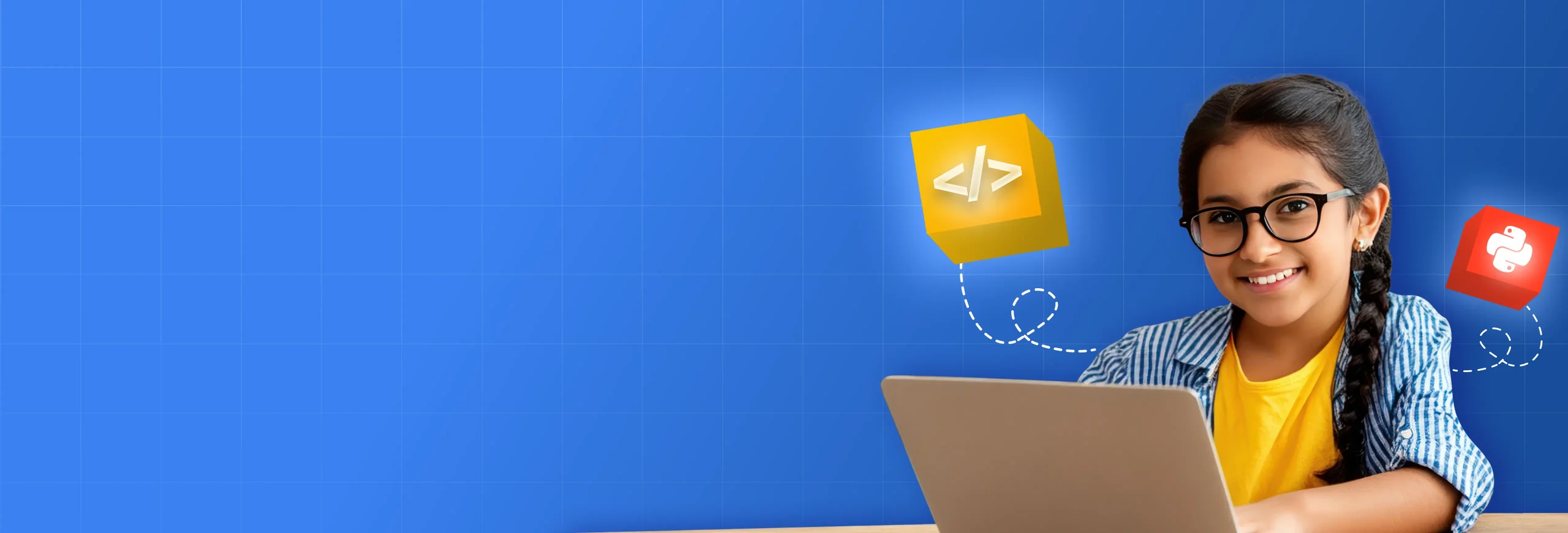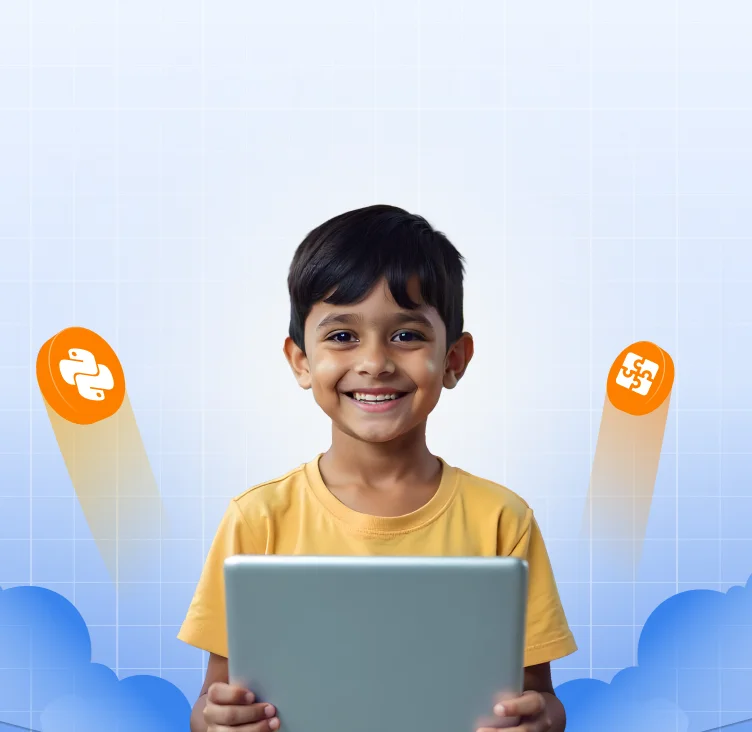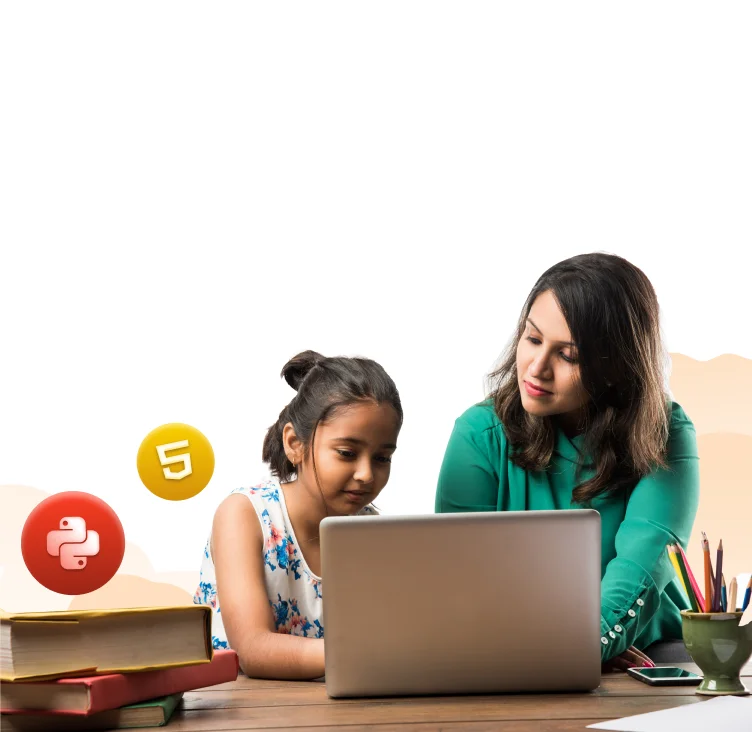Have you ever considered when children should start coding? As technology continues to shape the future, there is a growing interest in introducing coding early. Is there a perfect age to begin learning coding? Should children begin coding in preschool, or When to start coding classes for kids until they have developed stronger problem-solving skills? The discussion covers The Best Age for a Child to Start Coding, the benefits of coding for young learners, and how platforms like HackerKID can support them at every stage of their coding journey. Introducing programming to children can open doors to creativity, logical thinking, and future career opportunities.
What is the Right Age to Start Coding?
There is no single “perfect” age to start coding, as every child learns at their own pace. However, children as young as 5 or 6 years old can begin learning the fundamentals of programming, making this an Optimal age for kids to learn coding through visual coding platforms. These use drag-and-drop interfaces to teach logical thinking without requiring written syntax.
By the age of 7 to 10, children can transition to beginner-friendly text-based coding languages like Python, which is widely used due to its simple syntax. As they grow older and develop stronger analytical skills, they can explore more advanced languages such as JavaScript, C++, or Java.
The key takeaway is that kids can start coding as soon as they can understand basic instructions and patterns. The earlier they begin, the more they develop computational thinking, problem-solving skills, and creativity.
Why Should Kids Learn How to Code?
Coding is no longer just a technical skill for computer scientists, it’s becoming an essential skill for the future. Here’s why children should start learning to code:
- Develops Problem-Solving Skills – Coding teaches kids how to break down complex problems into smaller, manageable steps, improving their analytical thinking.
- Boosts Creativity – Programming encourages children to think outside the box and create their own games, animations, and applications.
- Enhances Logical Thinking – Understanding coding logic helps children develop structured thinking, which is beneficial in academics and real life.
- Encourages Resilience – Debugging code teaches kids persistence and patience, helping them overcome challenges with a problem-solving mindset.
- Prepares for Future Careers – With technology-driven industries growing rapidly, coding skills open doors to numerous career opportunities in STEM fields.
- Improves Math and Science Skills – Coding involves concepts like sequencing, loops, and algorithms, reinforcing math and science concepts in a practical way.
Benefits of Starting Coding Early
Starting coding at a young age provides numerous long-term benefits. Here’s how early exposure to coding can positively impact a child’s development:
1. Stronger Cognitive Development
Children’s brains are highly adaptable at a young age. Learning coding early enhances cognitive flexibility, memory, and logical thinking skills.
2. Better Academic Performance
Studies show that coding improves problem-solving and logical reasoning, leading to better performance in subjects like math and science.
3. Increased Confidence and Independence
When children build their own projects, they gain a sense of achievement and confidence in their abilities, fostering independence in learning.
4. Collaboration and Teamwork
Many coding projects encourage teamwork, helping children develop collaboration and communication skills that are valuable in school and beyond.
5. Early Exposure to STEM Fields
Coding introduces kids to computer science, engineering, and technology, sparking an interest in STEM-related careers from an early age.
Recommended Ages for Different Levels of Coding
While children develop at different rates, here are general age guidelines for introducing coding concepts:
| Age Group | Key Coding Concepts | Examples of Coding Languages |
| 5-7 Years (Pre-Readers) | Pattern recognition, sequencing, and simple problem-solving through games and storytelling. | Visual-based coding |
| 8-10 Years (Beginner Level) | Understanding basic programming concepts like loops, conditionals, and events. | Block-based coding |
| 11-13 Years (Intermediate Level) | Writing simple text-based programs, game development, and web design fundamentals. | Python, JavaScript, etc |
| 14+ Years (Advanced Level) | Advanced programming concepts, app development, AI, and cybersecurity. | Java, C++, HTML/CSS, etc |
How HackerKID Helps at Every Stage
HackerKID is a comprehensive platform that supports children at different stages of their coding journey. Here’s how it helps:
- Fun and Engaging Learning Experience
(Interactive coding challenges, projects, and games.)
- Age-Appropriate Curriculum
(Courses designed based on a child’s age and skill level.)
- Hands-on Project-Based Learning
(Real-world projects such as games, animations, and websites.)
- Guided Learning with Expert Support
(Tutorials and mentor support for an enriched learning experience.)
- Safe and Interactive Environment
(A secure and friendly space for children to explore and experiment with coding.)
- Prepares Kids for the Future
(Children not only learn to code but also develop critical thinking, creativity, and computational skills that will benefit them in any career path.)
Are You Ready for a Tech Challenge?
Skip the ordinary and jump into Buzzer, the interactive MCQ game designed for kids who love computer science and technology! Pick a topic, hit the buzzer, and test your knowledge with thrilling gamified questions. Stay sharp, score high, and claim your spot at the top! Play Buzzer now!
Conclusion
So, when is the best age for a child to start coding? The answer is it depends on the child! However, the earlier they begin, the better they develop essential skills that will shape their future. With engaging platforms like HackerKID, kids can start learning at any age, progressing from block-based coding to real-world programming languages.
Whether your child is 5, 10, or 15, it’s never too early (or too late) to start coding. Encourage them to explore, experiment, and build their own digital creations, the skills they gain today will empower them for a lifetime of success!
FAQs
- When should kids start coding?
Children can start coding as early as 5 to 7 years old using visual programming languages like block-based coding. At this stage, they develop problem-solving and logical thinking skills through interactive activities. As they grow older, they can transition to text-based programming.
- What age do most coders start?
Many people start learning to code between the ages of 10 and 16. However, some begin experimenting with programming concepts at an earlier age through games, educational platforms, and beginner-friendly coding environments.
- What is the best age to learn Python?
Python is beginner-friendly and can be introduced to children around the age of 8 to 10. Its simple syntax makes it an excellent first programming language for kids transitioning from block-based coding to text-based programming.
- Is coding OK for kids?
Yes, coding is highly beneficial for kids as it enhances creativity, problem-solving, logical thinking, and perseverance. It also prepares them for future careers in technology and STEM fields while making learning fun and engaging.
- Which age is best for coding?
There is no fixed “best” age to start coding, as children learn at different paces. However, ages 5 to 7 are ideal for introducing basic programming concepts, while ages 8 to 12 are suitable for more structured learning in text-based coding languages.
- What is the early age for coding?
The early age for coding typically starts at 5 years old. At this stage, children can engage in playful coding activities that teach logic and sequencing through drag-and-drop platforms.
- How to start coding from zero level?
To begin coding from scratch, start with visual programming languages. As you progress, transition to beginner-friendly text-based languages like Python. Online tutorials, coding games, and structured courses can help you build a strong foundation step by step.








